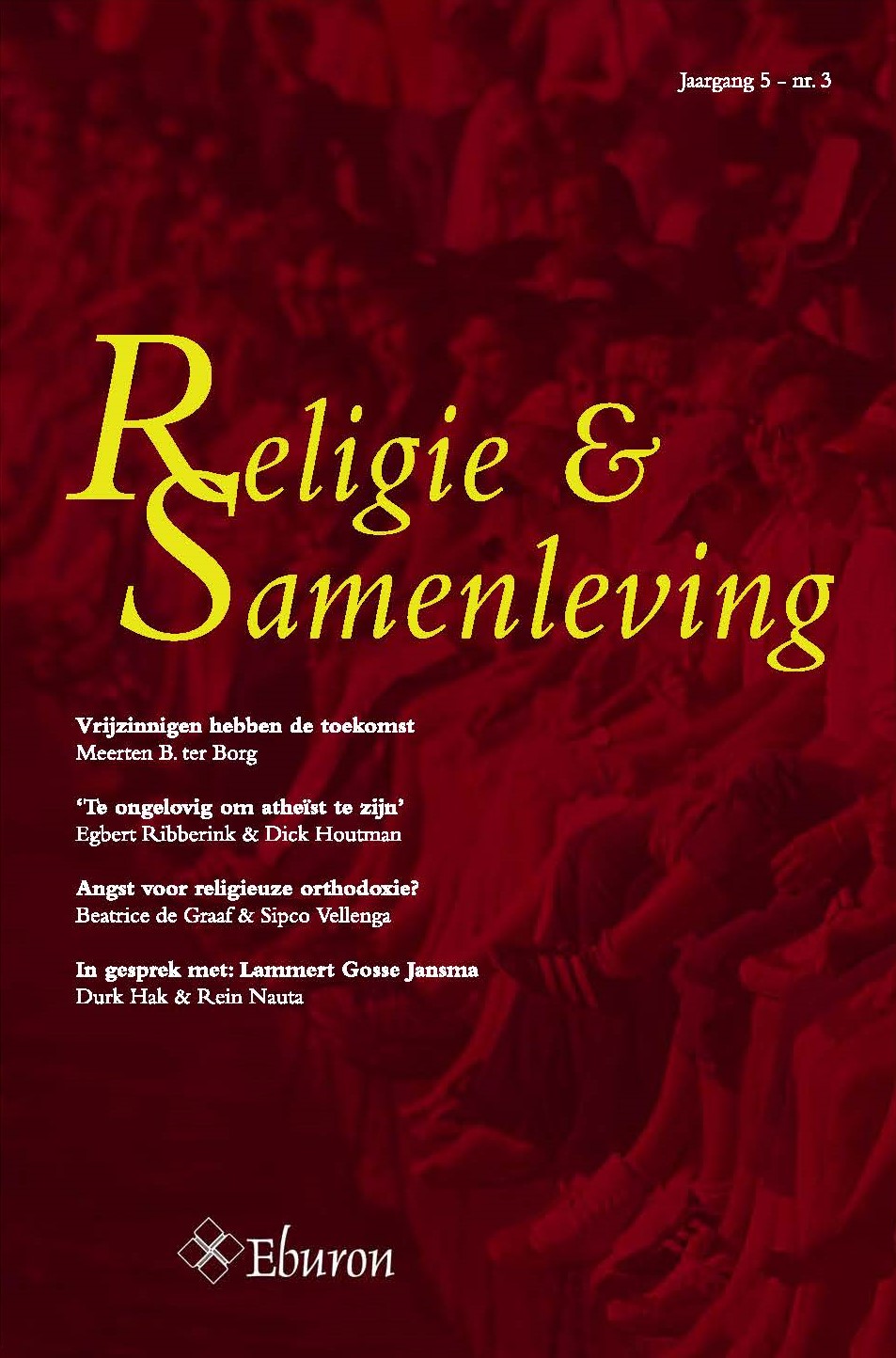‘Te ongelovig om atheïst te zijn’
Over de-privatisering van ongeloof
DOI:
https://doi.org/10.54195/RS.13061Samenvatting
Sociologists of religion have studied secularisation intensively. On the one hand, they focused on the decline of church attendance, and on the other hand on new forms of religion and spirituality and their public significance. A question that has been largely left unnoticed is what happens to those that say that they do not belief in God. The few articles that do address that question show that there is a great difference between a person that hardly thinks about whether God exists and someone who wants to ban every reference to God from the public domain. Recently we have seen the latter group becoming stronger and more outspoken. Looking deeper into this, we find that they do so because they feel threatened in their freedom of choice by religious people around them. Reacting on this, they try to raise public awareness for the negative side of religion, thereby mainly trying to convince unbelievers to cast away their tolerant attitude towards religion and to unite against religion. This process we call the deprivatisation of unbelief. The relation between the public influence of religion and the reaction of atheism offers new theoretical and empirical possibilities for the study of religion in the context of secular societies.




